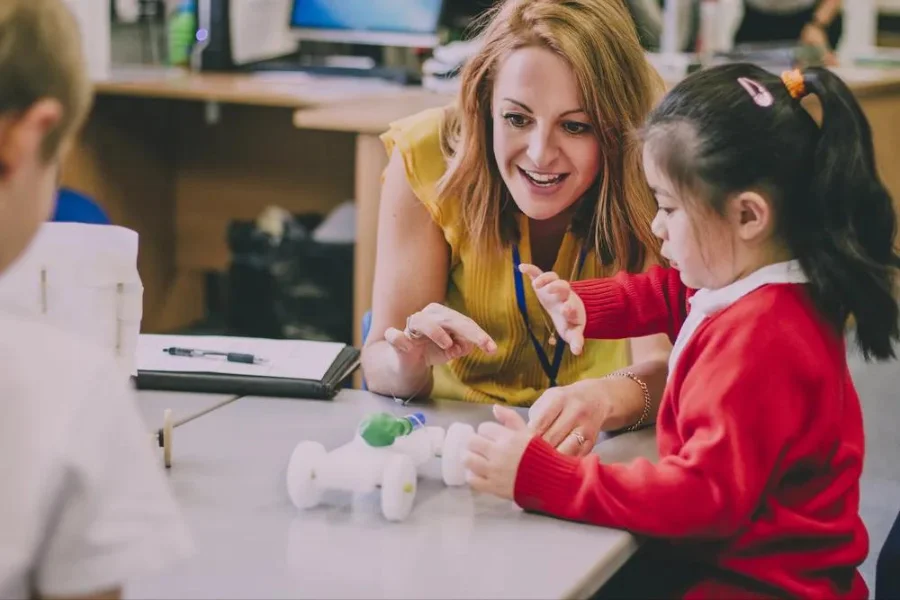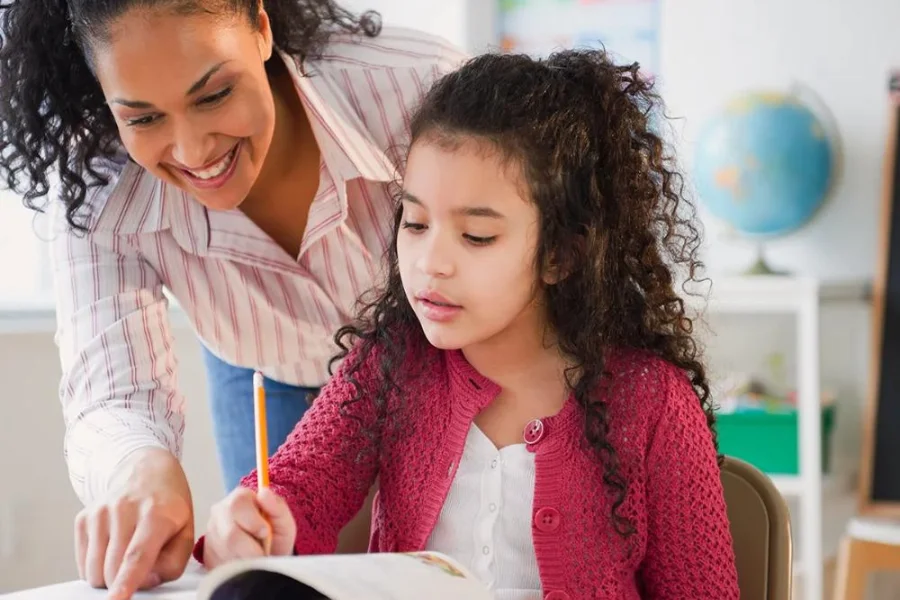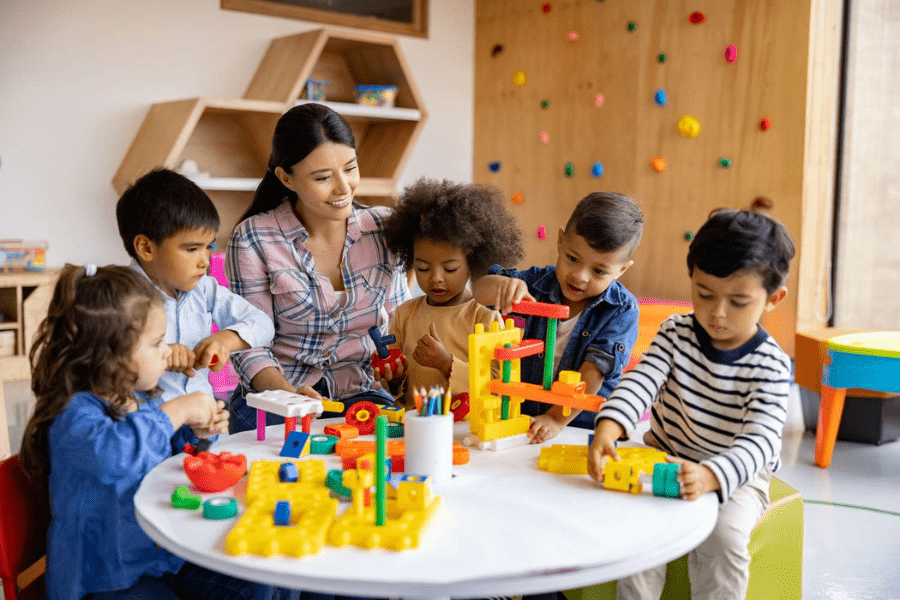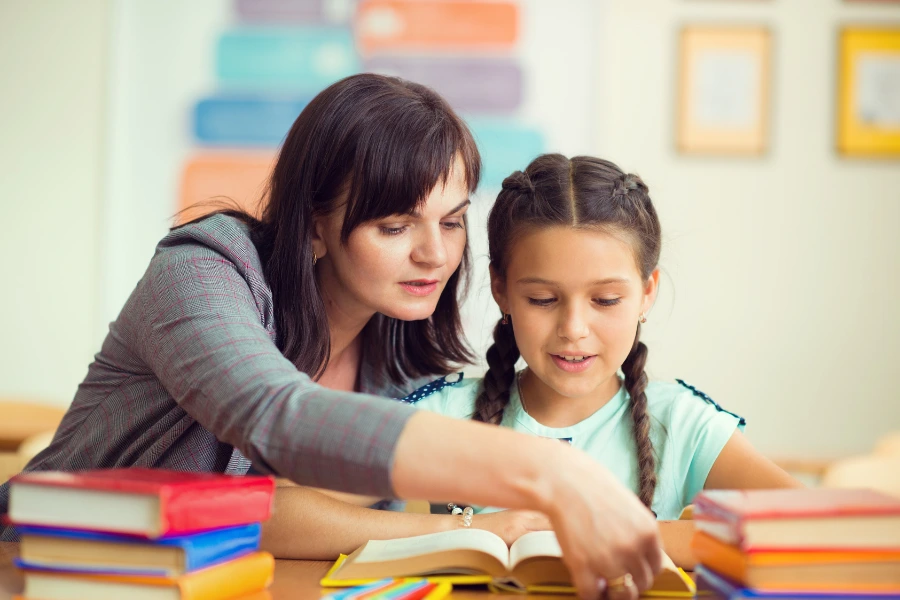
Source: bettshow
Attaining the correct learning outcomes depends directly on the Classroom Discipline that exists in any classroom. Positive Classroom Discipline implies that for attaining the desired behaviour the teacher should not resort to harsh means or any punishments. This method is based on the thought that no negative remark or any punishment should be implemented to attain the desired behaviour from a child.
Positive Classroom Discipline involves meticulous planning of the classroom atmosphere where children automatically are wired to take keen interest in the topics being taught and they remain focused enhancing their attention span.
What are Some Examples of Positive Classroom Discipline?
Positive classroom discipline works best when it’s practical, consistent, and based on respect.
The Example of Methods that show this can be used in daily classroom management is given below:
Build student relationships.
Invest time in building strong relationships with your students, wherein they trust you wholeheartedly and share their thoughts and ideas confidently. Strong relationships make it easier to guide behavior with care.
Establish classroom rules together.
Involving students in creating rules gives them a sense of ownership. Keep the rules clear, simple, and focused on respect and responsibility.
Model the behaviour you expect
Students pay attention to how their teacher acts. Show kindness, patience, and honesty in your daily actions; this sets a strong example.

Source: cambridgeenglish
Use positive reinforcement
Acknowledge and reward good behavior with encouraging words or small classroom privileges. Recognizing effort helps students stay motivated.
Acknowledge and applaud efforts.
Make it a point to acknowledge the smallest achievements of children and applaud their efforts in front of others to make them feel special and make it evident to other children that good behavior always wins you praise.
Make students accountable
Let children give you solutions and let them ponder over problems. Conduct brainstorming sessions, helping the child to reflect on what can be done to fix a certain situation.
Be on time and consistent.
Always value time by being punctual and setting a perfect example for children. When children feel that their teacher values their time, they too get into a habit of not wasting time and take learning seriously.
Appear pleasant and have a comforting body language.
Children immediately notice the way teachers function in a classroom. When the teacher has a calm voice and a proper posture, children are immediately focused and ready to absorb what is being taught. In any undesirable situation, the teacher must not increase the voice tone to prove their point.
Using the above actions is of great help to design and promote a learning space that gives freedom to each child to express themselves freely and thrive naturally in the classroom being the best versions of themselves.
To download the brochure about LD Course, Click Here!
For more details on the LD Course, Call/WhatsApp at +919321024137 / +919869866277
Importance of Positive Discipline in Inclusive Classroom?
Inclusive Classroom welcomes children of varied learning needs and varied backgrounds to gain education under one single roof. So, in such a complex scenario there must be high level of discipline to accommodate children of comprises of children who might have varied learning needs owing to the issues that they face.
Special care must be taken in cases of children with ASD who do not prefer too much noise which can be a trigger for them leading to unorderly behaviors. Positive Discipline in Inclusive Classroom is a must as every child’s needs must be accommodated to facilitate their learning and ensure that each child gains education along with their peers in a regular classroom.
Helps maintain a stimulating learning atmosphere.
Positive discipline aims at understanding the child’s problems that cause unruly behaviour, which ensures that no punishment is inflicted on children and every child is given a chance to explain. This helps children to be relaxed and focus more on learning then fearing any punishments or harsh comments.

Source: jimpire
Students become accountable
When children are given the responsibility to be accountable for their actions, it immediately fosters self-discipline, and they think twice before doing something that can unfavorably impact others.
Promotes desirable social and emotional behaviours.
By constantly guiding and assisting the child on how to manage their emotions, and behaving in an orderly manner without disrupting other people’s space, children gain better control of dealing with their emotions.
Supports students with diverse needs
Students who struggle academically or socially benefit most from positive discipline. Rather than concentrating on what is “wrong,” teachers try to identify the underlying cause of the behaviour and help students in creating successful strategies.
Reduces behavioural issues
Teaching and reinforcing positive behaviour helps prevent disruptions before they start. A clear, respectful structure makes expectations easier to understand and follow.
Promotes academic progress.
When the child is confident that the teaching methods are aligned with his learning styles he is prepared to handle any challenges giving a huge boost to their morale.
In an inclusive setting there are higher chances of miscommunications and disruptions that can lead to chaos therefore positive discipline is a thoughtful approach that takes care of each child’s mindset enabling them to be confident and function competently.
What are the Discipline Strategies in the Inclusive Classroom?
Discipline Strategies are approaches that have stood the test of time and have produced the desired outcomes and goals. Discipline strategies in inclusive classroom help children to understand that they are expected to behave in a certain manner which helps to facilitate learning for everyone eliminating any distractions. Discipline Strategies aim to cater to the learning needs of special children also whose needs may be diverse, making it challenging for them to concentrate completely.
The Learning Disability Course offered by Vidhyanidhi Education Society gives teachers useful knowledge about how students behave and gives them the skills they need to use positive discipline techniques. This training improves knowledge on how to run an inclusive classroom that supports kids’ emotional and mental growth.
Here are some effective discipline strategies used in an inclusive classroom:
Set clear and consistent expectations.
Having clear, simple rules makes it easier for all children to understand how to behave. Regularly expressing these expectations helps strengthen them without choosing a strong punishment.

Source: englishsunglish
Teach self-regulation skills
Offer children appropriate help to identify their emotions and things that trigger them, which leads to unruly behaviours. Once they know what the cause of concern a strategy can be implemented for children to regulate their thoughts and emotions, handling the situation comfortably without causing any distress.
Foster strong teacher-student relationships.
Building trust and showing empathy encourages students to respond better to guidance. A positive connection can often prevent problems before they begin.
Provide choices and encourage responsibility.
Giving students some control over their actions—like choosing between two assignments or deciding how to correct a mistake—promotes accountability and independence.
Use visual aids and clear communication.
Many students in an inclusive classroom benefit from visual reminders, structured routines, and straightforward language to help them stay focused and understand expectations.
Collaborate with support staff and families.
Consistent communication with parents, special teachers, and counsellors ensures a combined method for behaviour and learning support.
The inclusive classroom succeeds on structure, kindness, and adaptability. With proper training, like the Learning Disability Course from Vidhyanidhi Education Society (Govt. Regd.), educators are better equipped to use discipline strategies that promote respect, understanding, and success for every learner.
Join Vidhyanidhi Education Society’s LD Course now to empower inclusive minds today!
For more details on the LD Course, Call/WhatsApp at +919321024137 / +919869866277
To download the brochure about LD Course, Click Here!
FAQs
What is Good Discipline in the Classroom?
Good Discipline implies children having clear ideas of how they are expected to behave including polite behaviour, not causing disruptions and being cooperative.
Why is Discipline Important in the Classroom?
Discipline directly affects the learning outcomes so maintaining discipline helps in conducting the classrooms with perfect focus and decorum.
What is Positive Discipline Training?
Positive Discipline Training is a module especially for helping teachers gain insights of better classroom management through mutual respect, structure, and empathy offered at VES Institute.



